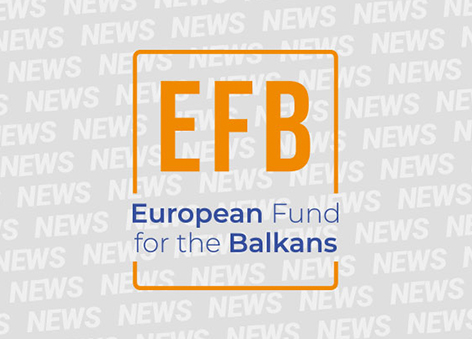
A European Fund for the Balkans Initiative in the frames of the Supporting Policy Development Programme is “Balkans in Europe Policy Advisory Group” (BiEPAG) - a group of researchers, scholars, analysts from the region and beyond which are working on a policy document on EU and the Western Balkans relations through open debate. After the initial 2 meetings in Graz and Brussels, the BiEPAG group gathered for a third series of panel discussions and brainstorming session in Zagreb in the period between January 30-31, 2014. Since the enlargement of the rest of the Western Balkans is dropping down on the EU agenda, this group main goal is to provide fresh thinking and new directions on how to bring it back. Therefore, the meeting in Zagreb was used for getting a substantial input from the academic community, regional experts, donors and political actors through the panel discussions “What is the Future of Europe?”, ”What with the remaining Balkans”, “What will be the key role of Croatia in the WB Enlargement”, “The Economic Prospects of the EU and the Western Balkans”, “Balkans 2020”, “Workplace of the Future”. BiEPAG group leader, Mr. Florian Bieber (Professor and Director of the Centre for Southeastern European Studies, University of Graz) stated that we should lower our expectations about the transformative power of EU. -The crisis is an old story now. It will pass, but the opportunity for a substantial debate may be gone for good. We shouldn’t miss the chance for discussing constructive and fresh ideas for the future developments. That is why a joint effort is needed to define the new narratives about the EU, but also its relations towards the Western Balkans- said Bieber. In regard of the future of Europe, Mr. Erhard Busek (Chairman - Institute for the Danube Region and Central Europe, Austria) pointed out that is challenging to discuss the EU Narrative in time of crisis. All the important factors should be included in judging and deciding what will be the future role of EU in the world as a global village. -The crucial topics and the real discussion should be around the migrations, the neighborhood policies, the brain-drain and unemployment of youth, new models of democracy in wider context and creating good examples of regional cooperation on different levels in the Western Balkans- said Busek. Going back to Croatia, the part of the Western Balkans that was included in the EU family on 1st of July last year as a 28th Member State, the First Deputy Prime Minister and Minister of European and International Affairs of Republic of Croatia Ms. Vesna Pusic clearly stated that over the 12 years of Croatian accession process, it became their predominant interest for the neighbors to join too. -Of course the EU enthusiasm is bigger in times of economic prosperity in comparison of these times of general austerity and crisis that we face now. But, our key objective should be the stability of the region whose future is definitely in the EU. Stabilizing the Western Balkans is stabilizing the EU too- said Ms.Pusic. The Economic prospects of the EU and the Western Balkans, together with the strategy SEE2020 of the Rergional Cooperation Council were discussed further on by Mr. Zoltan Pogatsa and Mr. Goran Svilanovic. Mr.Goran Svilanovic, the Secretary General of the Regional Cooperation Council accentuated the fact that the multidimensional regional cooperation is of utmost importance, but he also stated the fact that the region and EU are currently enjoying inertia without asking any questions. -The economy is a priority for the WB region, since the citizens of EU will not be ready to accept citizens who they don’t consider equal – education, economy and culture wise. National action plans are needed and specific models of economic governance. The labels on the money flow in the Balkans are China, Russia, Arab countries and EU, but still the biggest portion comes from EU- said Svilanovic. The final policy document of the BiEPAG group will be promoted in Sarajevo during the Annual General Assembly and conference of the European Foundation Centre “Rethinking Europe: Solidarity, civil society and political governance” and addressed to the different stakeholders in the EU Institutions, Balkan Governments and EU Member states.






